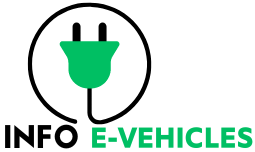In an unexpected development, plans for a joint venture involving Ford, LG Energy Solutions, and Koç Holdings to establish a battery cell factory in Turkey have been abruptly canceled. This memorandum of understanding, signed earlier this year, is now void, as Koç Holdings points to the evolving landscape of electric vehicle (EV) adoption as the primary reason behind its decision.


Koç Holdings’ Decision
Koç Holdings, a leading Turkish conglomerate, communicated the withdrawal of the agreement on Friday, emphasizing that the timing for a battery cell investment is no longer deemed appropriate given the current pace of EV adoption. The announcement was made through a statement to the Public Disclosure Platform.
“Considering the current pace of electric vehicle adoption, the timing is not appropriate for a battery cell investment,” stated Koç Holdings in their release.
Commitment Amidst Setback
Despite this setback, both Ford and Koç Holdings have affirmed their commitment to supporting electric vehicle production. Ford Otosan’s Kocaeli plant will continue to be a focal point for electric vehicle manufacturing, with the potential for reevaluating battery cell investments in the future, aligning with the dynamic nature of the electric vehicle market.
Ford’s current battery supply chain
The Ankara plant, initially anticipated to commence production in 2026, had ambitious plans with an initial annual production capacity set at 25 GWh, potentially expanding to 45 GWh over time, as per Ford’s earlier press release. Ford’s current battery supply chain involves LG’s Poland plant, which provides batteries for models such as the Mustang Mach-E and E-Transit.
Collaborative Efforts Amidst Challenges
In response to the canceled plans, LG Energy Solution expressed its commitment to collaborate with Ford on alternative strategies to support battery cell production for electric vehicles. While LG Energy Solution has partnerships with other major automakers like Tesla and Toyota, the decision to abandon the Turkish production plans comes amidst LG’s cautious outlook.
Industry Challenges and Resilience
The cancellation also follows a series of challenges for Ford, including disruptive United Auto Workers (UAW) strikes and a temporary halt in F-150 Lightning production earlier this year due to a battery-related incident. In light of these developments, former Ford CEO and current Hertz CEO Mark Fields weighed in, stating that the industry is currently grappling with the “tough part of mass [EV] adoption.”
Conclusion
The abrupt cancellation of the joint venture’s plans for a battery cell factory in Turkey marks a notable setback in the broader landscape of electric vehicle production. As the industry navigates challenges related to supply chain disruptions, labor strikes, and technological hurdles, the decision underscores the complexities faced by major players like Ford, LG Energy Solutions, and Koç Holdings. The commitment to alternative strategies and ongoing support for electric vehicle production, however, signals resilience in the face of adversity.
ALSO READ :-
Rivian Secures Green Light for New Electric Vehicle Manufacturing Plant in Georgia
India Contemplates Tariff Reductions, Paving the Way for Tesla’s Entry into the Market
SOURCE : TESLARATI
FAQs
Why was the joint venture’s agreement revoked?
The agreement was revoked by Koç Holdings, citing the “pace of electric vehicle (EV) adoption” as the primary reason. They deemed the current timing inappropriate for a battery cell investment.
What are the future plans for electric vehicle production in the region?
Ford and Koç Holdings remain committed to supporting electric vehicle production at Ford Otosan’s Kocaeli plant. There is also an acknowledgment of the possibility of reevaluating battery cell investments in the future in alignment with the evolving dynamics of the electric vehicle market.
What were the initial plans for the Ankara plant?
The Ankara plant was initially expected to begin production in 2026, with an annual production capacity of 25 GWh. Ford had plans to potentially expand this capacity to 45 GWh over time.
How does this impact Ford’s current battery supply chain?
Ford currently receives batteries for models like the Mustang Mach-E and E-Transit from LG’s Poland plant. Despite the canceled plans, both Ford and LG Energy Solution are working on alternative strategies to support battery cell production for electric vehicles.
